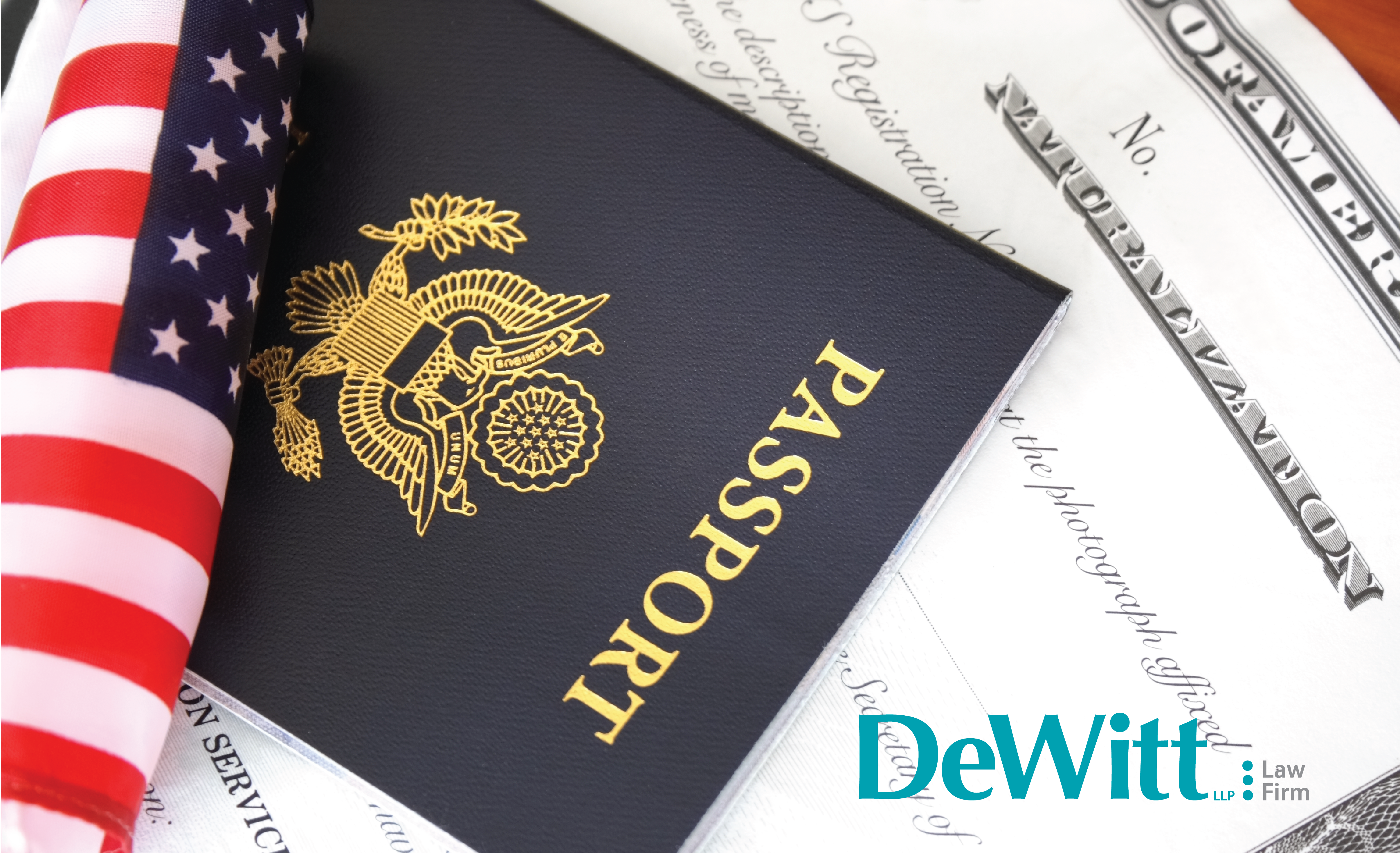

Changes in the U.S. Naturalization Process for Permanent Residents Applying for U.S. Citizenship
Becoming a U.S. citizen through naturalization is a significant milestone for immigrants who wish to fully engage in American civic life. Naturalization is more than a legal process – it is a commitment to the values and responsibilities of U.S. citizenship.
While the process may seem complex, understanding the legal requirements can help applicants prepare effectively and approach it with confidence. This article outlines the basic eligibility criteria for naturalization and highlights recent updates to two key factors: the civics test and the good moral character (GMC) standard.
Basic Requirements for Naturalization
The most common path to U.S. citizenship for foreign-born individuals is through naturalization. To qualify, applicants must generally meet the following requirements:
- Lawful permanent residency – you must have been a lawful permanent resident (green card holder) for at least five years (or three years if married to a U.S. Citizen) prior to applying for citizenship.
- Continuous residence – you must demonstrate continuous residence in the U.S. for at least five years immediately before filing your application (or three years if married to a U.S. Citizen).
- Physical presence – you must have been physically present in the U.S. for at least half of the required continuous presence.
- Local domicile – you must have lived for at least the three preceding months in the state or USCIS district where the application is filed.
- Good moral character – you must show that you have been a person of good moral character for at least five years prior to filing (or three years if married to a U.S. citizen).
- English language and civics knowledge – you must be able to pass the English language and civics test at the time of your naturalization interview.
Most of these requirements have remained unchanged for decades. However, recent updates have significantly revised how USCIS evaluates the civics test and the GMC requirement.
Changes to the Naturalization Civics Test
In September 2025, USCIS announced changes to the naturalization civics test, effective October 20, 2025.
- Applicants filing before October 20, 2025, will take the 2008 version of the test:
- 100 study questions
- Up to 10 questions asked during the interview
- Must answer at least six correctly to pass
- Applicants filing on or after October 20, 2025, will take the 2025 version:
- 128 study questions
- Up to 20 questions asked during the interview
- Must answer at least 12 correctly to pass
Exceptions to the English and Civics Test
Certain applicants may qualify for exemptions or modifications based on age and length of residency:
- 50/20 rule: age 50+ and over 20 years as a permanent resident – exempt from English test; may take civics test in native language with interpreter.
- 55/15 rule: age 55+ and over 15 years as a permanent resident – same exemption as above.
- 65/20 rule: age 65+ and over 20 years as a permanent resident – exempt from English test and eligible for a simplified civics test in native language.
These exceptions apply to both the 2008 and 2025 versions of the civics test.
Changes to the Good Moral Character Standard
On August 15, 2025, USCIS implemented a new policy for evaluating good moral character (GMC) for naturalization applications.
Previous Standard
Prior to this change, USCIS primarily assessed GMC by checking for disqualifying criminal convictions or other express disqualifiers. The absence of such convictions or disqualifiers was generally interpreted as sufficient proof of good moral character.
For instance, some criminal convictions constitute a permanent bar to good moral character, and therefore automatically triggered a ground for denial (they still do). Other criminal convictions are considered conditional bars to good moral character, meaning that an applicant may be able to overcome the issue by showing rehabilitation and positive equities.
New Standard
Under the new GMC standard, a lack of criminal record is no longer sufficient. The updated policy restores a pre-1990 discretionary framework, allowing USCIS officers to evaluate applicants as whole individuals. A clean criminal record alone is no longer enough. Instead, USCIS now considers:
- Sustained community involvement and contributions while in the U.S.
- Family caregiving and responsibilities and ties to the U.S.
- Educational achievements
- History of lawful and stable employment, as well as employment achievements
- Length of lawful residence in the U.S.
- Financial responsibility and U.S. tax compliance
In the past, these factors were only necessary to counterbalance a conditional bar or other unfavorable element. At present, these factors are taken into account even in the absence of a criminal record or other bars to GMC.
USCIS continues to closely examine the applicant’s criminal history. Permanent bars to GMC still disqualify applicants from naturalization, as they did in the past. If a conditional bar applies, the agency exercises increased scrutiny in assessing whether the applicant can successfully prove rehabilitation and reformation. To that end, USCIS examines evidence of:
- Compliance with court orders or probation
- Rectifying family obligations (e.g., child support)
- Community testimony
- Mentoring others with similar pasts
- Repayment in full of past due taxes
- Repayment in full of benefit overpayments
Lastly, the new standard authorizes USCIS to consider other behaviors inconsistent with civic responsibility, even if not criminal (e.g., habitual traffic violations, harassment, etc.).
In closing, navigating the naturalization process requires careful attention to all eligibility requirements and to ongoing policy changes. If you have any questions related to naturalization or any other immigration-related matters, please contact Raluca (Luca) Vais-Ottosen at (608) 252-9291 or rvo@dewittllp.com.



